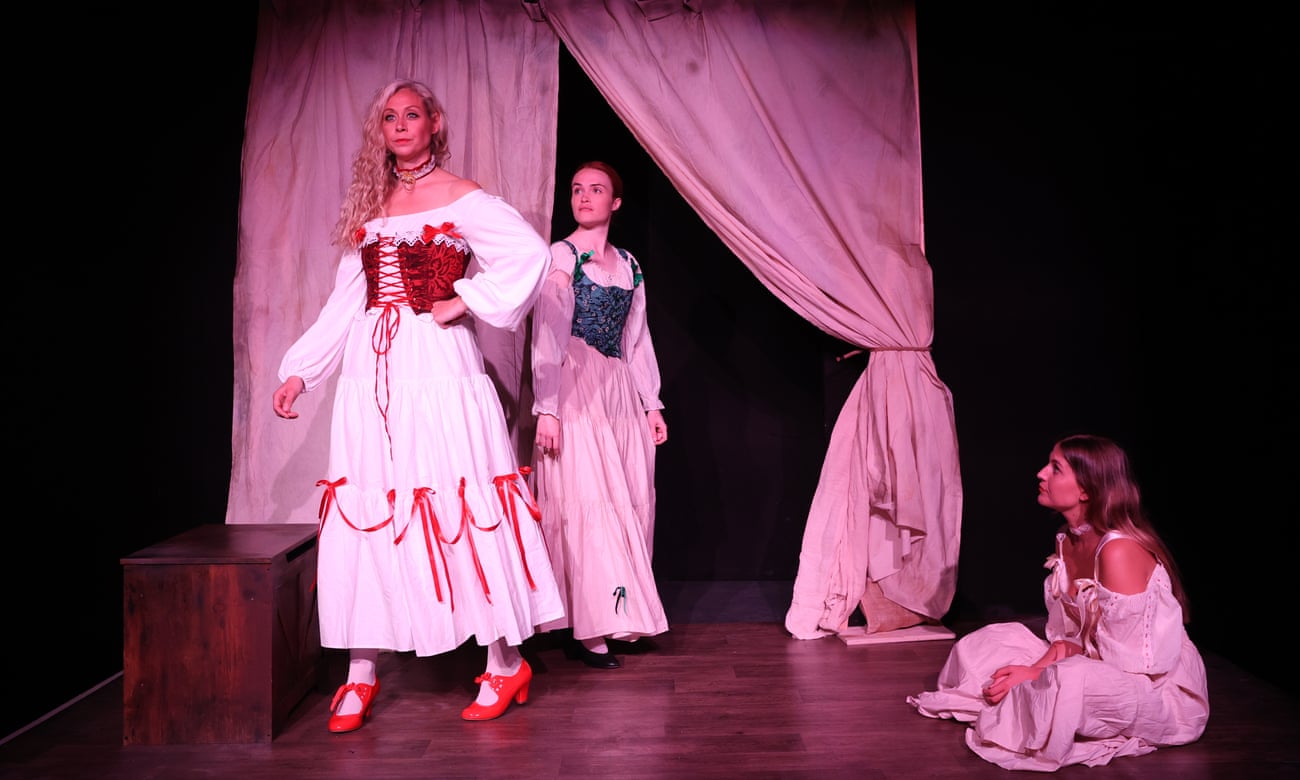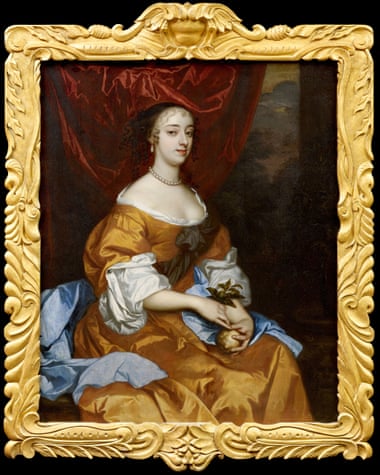‘It must have felt extraordinary’: the play inspired by English theatre’s first female actors

The company behind The Actress has dug into 17th-century archives to bring to life two pioneering women of the stage
N 8 December 1660, crowds accumulated on Vere road, off Oxford avenue in London, where the King’s organization changed into acting Othello. The night turned into cold and windy, the sky prepped for a storm. For the first time within the history of professional English theatre, a female changed into taking to the level.
“It have to have felt notable,” says Eve Pearson-Wright, from the husband-and-wife organisation lengthy Lane Theatre. Its new manufacturing, The Actress, explores the generation. “these girls – who have lived thru the Puritan era – are unexpectedly witnessing one in every of their personal, up there on level, going toe to toe with the guys.”
Taken into consideration immoral and immodest, London’s theatres were closed with the aid of the long Parliament in 1642, simply after the begin of the English civil battle. They have been reopened by Charles II in 1660, while two men were certified to supply indicates. One turned into William Davenant, a poet and playwright, the other Thomas Killigrew, a dramatist and theatre supervisor, who presented Othello on Vere road. “for the duration of the Puritan technology, Killigrew had been in France, wherein that they had lady actors,” says Andrew Pearson-Wright, the other 1/2 of long Lane Theatre. “He must have visible what having girls on stage could upload to a tale.”

On that December night, when strong gusts were blowing thatch off nearby roofs, the woman on stage was playing Desdemona. But the finer details of her performance are lost. While historians tend to agree that this is the first recorded date on which a woman acted professionally, there is no consensus on who she was.
Initial research for the play led the Pearson-Wrights to Margaret “Peg” Hughes. “She was a Nell Gwyn-type figure, five years prior to Gwyn,” says Andrew. “She was glamorous and well painted and had an affair with the king’s cousin. She’d almost become this celebrity.”
When Andrew started writing a play about the pioneer, he focused on Hughes, with Eve stepping into the role. But, diving deeper, they stumbled upon Anne Marshall, a chaplain’s daughter, whom a handful of academics claim played the role instead. “She felt to me like an actor’s actor, from the parts she played and the way she was considered and written about,” he says. “Her sister became an actor, she married an actor – it felt like she’d been ingrained in the craft.”
Hughes and Marshall carried out at around the equal time, however Andrew says historians aren’t positive who became first. Inside the Actress, lengthy Lane Theatre have tried to fill within the gaps. Of their story, Marshall, a operating-elegance girl who's painted less well and less often, is pitched by means of the display’s producer towards Hughes, a confident, glamorous woman who is more consistent with what the (male) target audience desires to see.
The view of the audience became important. For a girl inside the seventeenth century, being an actor wasn’t just a query of choosing an unusual career; it became about your location in society and the way you had been willing to be seen. Performing and intercourse work have been inextricably tied; women who acted were leered at and appeared down on.
There have been men who didn’t want to paintings with them, manufacturers that wanted to exploit them. However they didn’t give up
“within the healing period, the audience would have a choice,” Andrew says. “they could watch the show on the the front, or pay to sit within the dressing rooms and watch the women trade. They had been made to be looked at and uncovered.” The openly sexualised function of lady actors feels relevant nowadays, Eve says: “We keep making the point within the play that it’s the guys who get to decide which girls are remembered.”
The couple have enjoy of making theatrical tales that commemorate the underdog from ancient moments. In 2018, they took to Edinburgh and later toured The large Killers, a display approximately a soccer group of mill employees in the 1870s, whilst the game turned into performed only with the aid of the top training. They're reviving The giant Killers at this yr’s fringe, alongside The Actress and a youngsters’s display, Arthur’s Ani-Magination. To take all three indicates to the perimeter, they fashioned a repertory theatre of 7 actors.
Doing rep theatre has long been a dream for Andrew. As a baby, he would go to his grandparents every summer time in Pitlochry, Perthshire, and go to the theatre to look at the rep organisation. “That’s where I fell in love with acting,” he says. “It permits actors to perform roles you didn’t know were of their variety.” It additionally makes appropriate enterprise sense, permitting them to live longer in one area, with more to offer a theatre and an target audience. Eve says: “whilst you paintings on a play, you grow to be a own family with the forged, you then disappear. The concept of making rep is that we are able to build it similarly and live with them for longer.”
This pleasure in collaboration is woven into the manner they inform this tale of 17th-century drama. Rather than pitting Hughes and Marshall against each different, The Actress is an ode to both women. “it would were so clean for them to surrender,” Eve says. “There had been men who didn’t need to work with them, producers that desired to exploit them. However they didn’t surrender. I really like to assume they fought for those opportunities. It’s in an actor’s nature to try this. And in doing so – in being tenacious – they didn’t simply make a call for themselves; they made a lifestyles for others.”
The Actress is at Underbelly, Bristo rectangular, till 29 August
… we've a small favour to ask. Tens of millions are turning to the parent for open, unbiased, excellent information every day, and readers in a hundred and eighty nations around the arena now support us financially.
We agree with every person deserves access to facts that’s grounded in technological know-how and truth, and evaluation rooted in authority and integrity. That’s why we made a exclusive desire: to keep our reporting open for all readers, regardless of in which they stay or what they are able to find the money for to pay. This means greater people can be higher informed, united, and inspired to take meaningful motion.
In those perilous times, a reality-searching for global news employer like the dad or mum is critical. We haven't any shareholders or billionaire proprietor, that means our journalism is loose from business and political have an impact on – this makes us different. Whilst it’s never been more vital, our independence lets in us to fearlessly check out, challenge and reveal the ones in power. Support the guardian from as little as $1 – it most effective takes a minute. If you can, please don't forget supporting us with a normal amount every month. Thank you.



Comments
Post a Comment